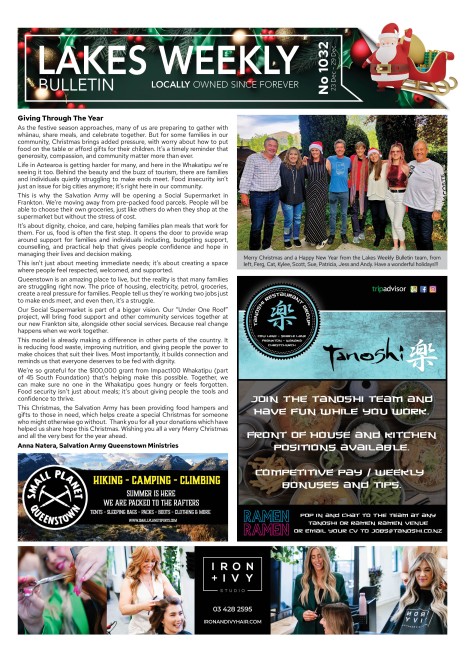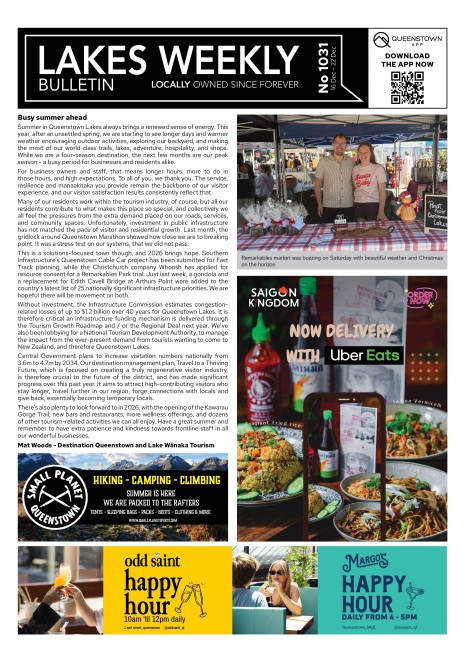NUESTRA VOZ - La riqueza de ser bilingüe
Emigrar a un país distante de nuestras raíces presenta desafíos propios y, entre ellos, la barrera lingüística emerge como uno de los obstáculos a la hora de querer adaptarnos a un nuevo lugar. Sin embargo, es esencial reflexionar sobre lo afortunado que somos al emprender un viaje en el que estamos obligados a aprender un nuevo idioma.
Al superar nuestras limitaciones ligadas al miedo y a la vergüenza de equivocarnos, deberíamos sentirnos orgullosos simplemente por intentarlo. Las trabas que nuestra mente nos impone, no deben frenarnos en nuestro camino para estudiar inglés. Fortalecer nuestra comprensión facilitará una adaptación fluida e integración en la sociedad que nos recibe.
El bilingüismo mejora la agilidad mental y la creatividad. Nuestras voces se transforman en puentes culturales, fomentando la diversidad y abriendo puertas a nuevas conexiones y perspectivas.
Hablar inglés también nos ayuda a contribuir a la comunidad, brindando orientación a aquellos recién llegados que buscan adaptarse al país.
Entonces, ¿cómo aprender o perfeccionar el inglés? Hay varias técnicas; primero identificar el estilo que mejor se adapta a nuestro aprendizaje, un paso crucial para poder avanzar de forma rápida y efectiva.
Si la escritura es tu fuerte, considera llevar un blog o hacer listas, por ejemplo, para las compras, ideas, proyectos o de palabras que se usan en la cocina, el baño o la sala de tu casa. Anota términos que no te resulten familiares y aprende su significado.
Si eres buen oyente, atrévete a entablar conversaciones con gente nueva, lo que te obligará al menos a intentar comunicarte de la mejor forma. No tengas vergüenza, ya que errar también es parte del aprendizaje. Y si no entiendes alguna expresión, frase o palabra, acostúmbrate a preguntar, ya que eso hará el proceso más fluido. Utiliza en tus pláticas las palabras nuevas que vayas aprendiendo.
Escuchar música y cantar puede ser otra opción. Lee las letras de tus canciones favoritas en inglés, ya que eso puede ayudar a comprender y a mejorar la pronunciación.
Mira películas con subtítulos en inglés y, a medida que avances tu comprensión, quítalos. Adapta tus oídos para entender palabras y acentos. También puedes hacerlo mirando videos en redes sociales.
Únete a grupos de estudio donde conocerás a personas que comparten tu deseo de aprender. En la biblioteca de Queenstown encontrarás clases gratuitas de conversación y juegos, cada jueves de 18.00 a 19.00 horas, impartidas por Natalia Brown, una activa miembro de nuestra comunidad.
Asimismo, todos los domingos a partir de las 16.30 horas, hay lecciones gratis en la iglesia ubicada en 25 Douglas Street, Frankton.
Y para los residentes, existen cursos completamente sin costo en distintos establecimientos. Si buscas clases online, puedes acceder a centros como English Language Partners (https://www.englishlanguage.org.nz/) y MSL English (https://englishstudy.nz/).
Abundan formas entretenidas para aprender ya seas principiante o tengas conocimientos previos. Sólo recordemos que esto se logra cuando superamos el miedo, y lo más importante, apoyándonos mutuamente en este camino para perfeccionar nuestro inglés y adaptarnos mejor a Nueva Zelanda.
English Translation:
The wealth of being bilingual
Immigrating to a country far from our roots presents its own challenges and, among them, the language barrier emerges as one of the obstacles when trying to adapt to a new place. However, it is essential to reflect on how lucky we are to embark on a journey where we are forced to learn a new language.
By overcoming our limitations linked to fear and the shame of being wrong, we should feel proud simply for trying. The obstacles that our mind imposes on us should not stop us on our way to study English. Strengthening our understanding will facilitate a smooth adaptation and integration into the society that receives us.
Bilingualism improves mental agility and creativity. Our voices become cultural bridges, fostering diversity and opening doors to new connections and perspectives.
Speaking English also helps us contribute to the community, providing guidance to those newcomers looking to adjust to the country.
So how to learn or improve English? There are several techniques; first identify the style that best suits our learning, a crucial step to be able to advance quickly and effectively.
If writing is your forte, consider blogging or making lists, for example, for purchases, ideas, projects, or words used in the kitchen, bathroom, or living room. Write down terms that are unfamiliar to you and learn their meaning.
If you are a good listener, dare to start conversations with new people, which will force you to at least try to communicate in the best way. Do not be ashamed, since to err is also part of learning. And if you don't understand an expression, phrase or word, get in the habit of asking, as that will make the process more fluid. Use the new words that you are learning in your conversations.
Listening to music and singing may be another option. Read the lyrics of your favorite songs in English, as this can help you understand and improve your pronunciation.
Watch movies with English subtitles, and as your understanding progresses, remove them. Adapt your ears to understand words and accents. You can also do it by watching videos on social networks.
Join study groups where you will meet people who share your desire to learn. In the Queenstown library you will find free conversation and games classes, every Thursday from 6:00 to 7:00 p.m., taught by Natalia Brown, an active member of our community.
Also, every Sunday from 4:30 p.m., there are free lessons at the church located at 25 Douglas Street, Frankton.
And for residents, there are courses completely free of charge in different establishments. If you are looking for online classes, you can access centers such as English Language Partners (https://www.englishlanguage.org.nz/) and MSL English (https://englishstudy.nz/).
Entertaining ways to learn abound whether you are a beginner or have prior knowledge. Let's just remember that this is achieved when we overcome fear, and most importantly, supporting each other on this path to perfect our English and better adapt to New Zealand.









